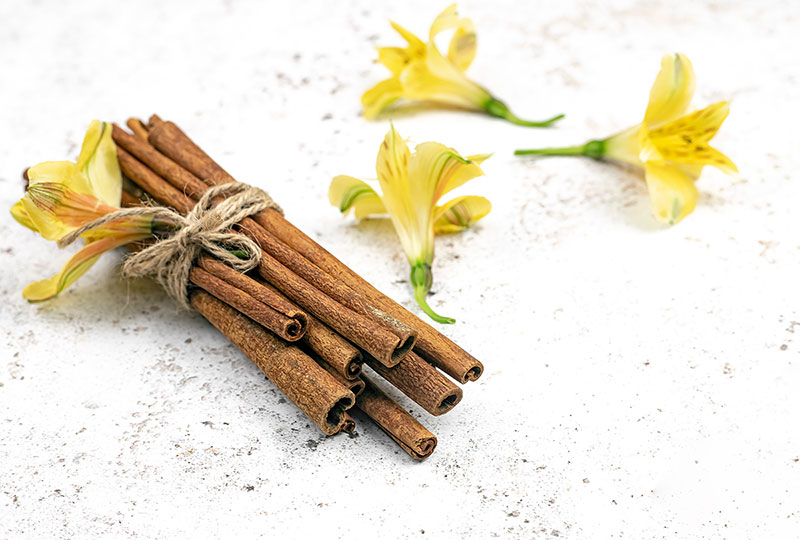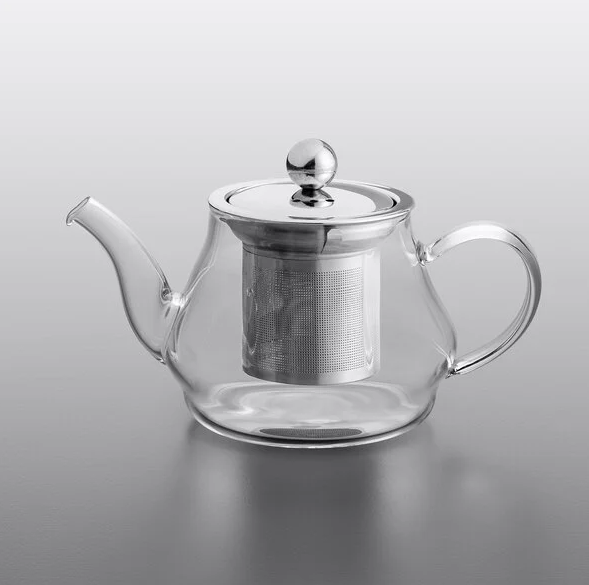Health Benefits of Cinnamon Tea
Cinnamon, the most important spice in kitchens around the world, is so much more than just a flavoring ingredient. Hot cross buns, gingerbreads and spiced teas would never taste the same if we robbed them of this unique spice. But, have you ever considered adding cinnamon into your diet in the simplest form too – as herbal tea?
What is cinnamon tea?
Simple cinnamon tea is an infusion of cinnamon bark in boiling water. Although pure cinnamon tea is not that common, you can easily make it at home. Cinnamon is the most commonly used in spiced tea blends that adds an aromatic and sweet note. It blends well with black and darker oolong tea, but green and white tea blends may taste delicious as well. To make pure cinnamon tea, you will need cinnamon sticks, cinnamon chips or ground cinnamon powder. Cinnamon powder is best used for tea lattes or milk teas, while cinnamon sticks and chips are great for regular infusions. If you are using cinnamon sticks, use pestle and mortar to crush them before brewing or they won’t release a lot of flavor.What are the most popular types of cinnamon?
Not all cinnamons will taste the same. Even the same type of cinnamon in different forms may taste completely different once brewed. The two most common types of cinnamon are Ceylon cinnamon, Cinnamomum verum or true cinnamon and cassia cinnamon or Cinnamomum cassia, both from the Lauraceae botanical family. Other popular types are Indonesian cinnamon or Cinnamomum burmannii and Saigon cinnamon or Cinnamomum loureiroi.
Indonesian cinnamon sticks
What is the best time to drink cinnamon tea?
Pure cinnamon tea is naturally caffeine free, which makes it suitable for any time of the day or night. However, cinnamon in larger quantities may cause some side effects. It’s not advisable to consume cinnamon in large quantities if you are pregnant or breastfeeding. Studies say that normal daily consumption for healthy individuals showed no negative side effects [1]. However, cassia cinnamons contain compound called coumarin, which may cause significant liver damages if taken in large amounts over a longer period of time [2]. Indonesian and Vietnamese cinnamon are high in coumarin too [3].Disclaimer: This article is for informational purposes only. It’s not intended to replace medical advice, diagnosis, or treatment. Every person is different and may react to different herbs and teas differently. Never use teas or herbs to treat serious medical conditions on your own. Always seek professional medical advice before choosing home remedies.
Potential Health Benefits of Cinnamon Tea
Drinking cinnamon tea may provide many health benefits. Different cinnamons will not only have different flavors and appearance, they will also have a different chemical composition. The amount of beneficial compounds will have an effect on the potential health benefits. However, they will all provide similar benefits. Among other compounds, all cinnamons contain procyanidins, catechins and essential oils [4]. Scent and flavor in cinnamon come from cinnamaldehyde, which is present mostly in bark [5]. For example, Ceylon cinnamon contains 49.9% of cinnamaldehyde in bark, while the Chinese cinnamon may contain up to 97% [6] of cinnamaldehyde. It doesn’t surprise that the other Latin name for Chinese cinnamon is Cinnamomum aromaticum.1. Neutralising bad breath
The reason cinnamon is added in toothpastes and chewing gums is not only because of its flavor. It may actually help remove bad breath. Studies showed that cinnamon may provide an antifungal and antimicrobial activity and help fight bacteria commonly found in mouth that may cause tooth caries and bad breath. Antimicrobial activity in cinnamon comes from cinnamaldehyde, the same compound responsible for flavor [7].2. Aiding weight loss
Studies showed that cinnamon may prove to be a good companion if you are trying to lose weight. It may help lower LDL cholesterol levels, often called the bad cholesterol and blood lipid levels. Studies showed that even 1 gram of cinnamon per day may provide these benefits.3. Lowering blood sugar
Studies suggest that cinnamon bark may help lower blood sugar levels [8], and act similar to insulin, thus it may provide benefits to people with Type 2 diabetes. However, not all cinnamons may have the same potency, with the most beneficial one being Cinnamomum burmannii or the Indonesian cinnamon [9].4. Boosting immune system
Antioxidant effect of cinnamon comes from eugenol. Eugenol is present both in leaves and bark. Cinnamon may help reduce oxidative stress and help fight free radicals and help prevent other diseases [10].5. Protecting heart
Cinnamon may improve heart health by lowering bad cholesterol and increasing levels of good cholesterol. Studies showed the benefits may be improved by including regular training too [11]. Furthermore, it may help decrease stiffness in arteries and reduce inflammation [12].6. Anti inflammatory properties
Cinnamon contains different compounds that may provide anti inflammatory effect [13]. Studies showed that both Ceylon and Chinese cinnamon may be beneficial for fighting chronic inflammation [14].7. Anticancer effect
In the future, cinnamon may prove to be a great spice for preventing and treating different cancers. Because of its anti oxidative and anti-inflammatory activities, cinnamon may help prevent and treat cancers in different ways. Studies suggest it may help destroy cancer cells and prevent cancer spreading to other parts of the body [15]. Furthermore, studies showed that cinnamon may help increase the effect of anticancer drugs. [16]8. Protecting the brain
There’s evidence that cinnamon may help with both Parkinson’s and Alzheimer’s disease [17]. It may help reduce oxidative stress and inflammation in brain. Furthermore, cinnamon may help improve attention and memory [18] and learning capabilities. [19]9. Regulating blood pressure
Studies showed that cinnamon may prove to be helpful for lowering blood pressure. Some studies confirmed its efficiency, but more research is needed. [20] Ready to make a cup of cinnamon tea? Find recipes here.References:
[1] https://www.ncbi.nlm.nih.gov/pmc/articles/PMC4003790/ [2] https://www.nccih.nih.gov/health/cinnamon [3] https://www.ncbi.nlm.nih.gov/pmc/articles/PMC4466762/ [4] https://www.ncbi.nlm.nih.gov/pmc/articles/PMC4003790/ [5] https://www.ncbi.nlm.nih.gov/pmc/articles/PMC4003790/ [6] https://www.ncbi.nlm.nih.gov/pmc/articles/PMC7571082/ [7] https://www.ncbi.nlm.nih.gov/pmc/articles/PMC7571082/ [8] https://www.ncbi.nlm.nih.gov/pmc/articles/PMC4003790/ [9] https://www.ncbi.nlm.nih.gov/pmc/articles/PMC3983393/ [10] https://www.ncbi.nlm.nih.gov/pmc/articles/PMC4003790/ [11] https://www.ncbi.nlm.nih.gov/pmc/articles/PMC4312399/ [12] https://www.graduate.umaryland.edu/gsa/gazette/November-2015/Health-Benefits-of-Cinnamon/ [13] https://www.ncbi.nlm.nih.gov/pmc/articles/PMC4003790/ [14] https://pubmed.ncbi.nlm.nih.gov/25629927/ [15] https://www.researchgate.net/publication/323558137_Revealing_the_Potency_of_Cinnamon_as_an_Anti-Cancer_and_Chemopreventive_Agent [16] https://www.ncbi.nlm.nih.gov/pmc/articles/PMC5896244/ [17] https://www.hindawi.com/journals/ecam/2014/642942/ [18] https://www.health.harvard.edu/blog/spice-up-your-holidays-with-brain-healthy-seasonings-2016120710734 [19] https://www.eurekalert.org/pub_releases/2016-07/varc-cmb072116.php [20] https://www.ncbi.nlm.nih.gov/pmc/articles/PMC7885002/
More from:
SLL




Leave a comment